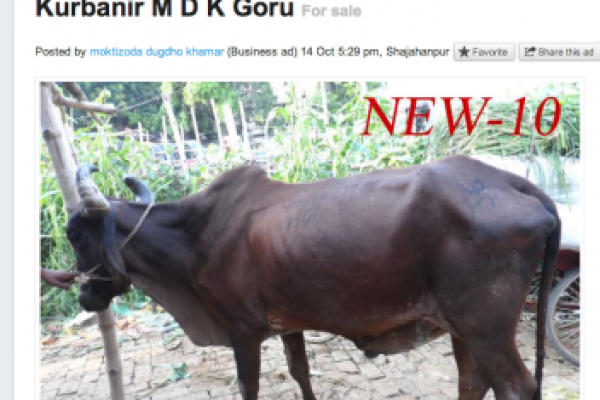Oct 16, 2013
Muslims in Pakistan, Bangladesh, and elsewhere went online to buy live cows and goats for the traditional Islamic Feast of Sacrifice, known as Eid al-Adha, because shopping on the Internet was easier than going to crowded street markets to buy the animals.
“The purchase of sacrificial animal [online] has gained popularity as it is found to be the most convenient way of buying an animal for the ceremonious day,” Pakistan’s The Nation newspaper reported Wednesday.
Read the Full Article

Already a subscriber? Login
